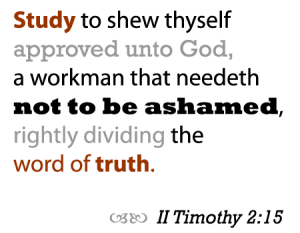Biblical scholars have long argued that older written manuscripts are more accurate than those penned at a more recent date.
The critical argument that a pristine (or earlier date of writing or printing) biblical manuscript is more accurate than a later manuscript copy is not proven and is a mere assumption.
Specifically, King James Bible critics use this assumptive argument to discredit the Authorized Version. They claim that Vaticanus (325-350 AD) and Sinaiticus ( 500-550 AD) manuscripts are more accurate manuscripts, being dated much earlier than the Greek basis of the King James Bible text, that is the Textus Receptus manuscripts (c. 1500 AD).
A plain but simple illustration reveals otherwise. A photo of one of my several King James Bibles. Worn out and falling apart from BELIEVING USE (like many other older copies) a NEW copy of the SAME TEXT must now be used.
Even the “original manuscripts” of the Bible are not extant or still in existence—no one today has ever seen them! The originals as well as accurate copies of original manuscripts were believed and worn out from use. Copies were then made of the same words but on newer materials. The Majority Text or Textus Receptus is based upon over 2000 worn and agreeable fragmented manuscripts, some much earlier than Vaticanus and Sinaiticus.
Therefore, some ‘earlier’ manuscripts were unused, placed on the ‘shelf’ because they were not believed. They were discovered later by ‘scholars’ like my excellent condition 2015 NIV, GNMM, NASV, ASV, 1960 RSV, etc. These shelved translations are barely used and occasionally read by me to reveal their many inconsistent theological terms and translation errors. They were produced by men who believed no translation—even their own—was the inerrant word of God; all believed every translation only contained some of the word of God. Their own profession revealed the prophetic truth:
Ever learning, and never able to come to the knowledge of the truth. (2 Timothy 3:7 KJB)
All the arguments about this or that manuscript notwithstanding, the preservation of God’s words is in His hands—not in classroom or history’s arguments. In the first century Jesus said:
Heaven and earth shall pass away, but my words shall not pass away. (Matthew 24:35 KJB)
He said “words”—not manuscripts, not ideas, not thoughts, but “words”. The professing Christian should know where these words are today.
1 B.F. Westcott (British scholar, 1890) and F. J. A. Hort (Irish theologian, 1892) produced The New Testament in the Original Greek. In that work they held that the most recent Greek text… “ the Syrian, or Byzantine text-type (eastern), of which the newest example is the Textus Receptus and thus from the critical text view is less likely reliable…The two scholars identified their favorite text type as “Neutral text”, exemplified by two 4th-century manuscripts, the Codex Vaticanus (known to scholars since the 15th century), and the Codex Sinaiticus (discovered in 1859), both of which they relied on heavily (not exclusively) for this edition.” (Wikipedia 2020)

